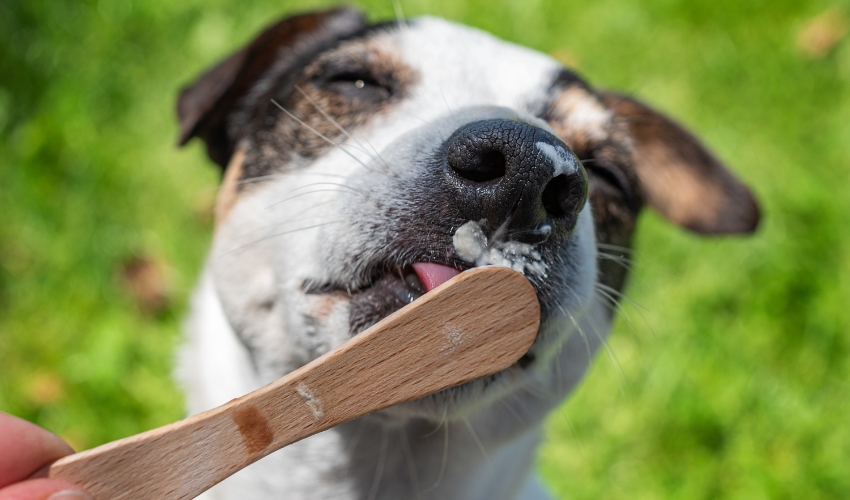Humans need sleep to function well. What occurs when we sleep has an impact on how we feel when we wake up. The human body supports normal brain function and preserves physical health while we sleep. Same in dogs! As we all know, dogs love sleeping – to the point that our fur buddies sleep as much and more than us!
Everything from how much sleep your dog needs to whether you should be concerned if they sleep all day or have trouble falling asleep at night to creating a safe sleeping environment is covered in this article about sleep in dogs.
Importance of Quality Sleep in Dogs
Dogs’ behavior and general health can be affected when they get little sleep. A restful night’s sleep greatly enhances your pet’s general health.
For our furry pals, getting enough sleep and rest offers numerous advantages.
- It enhances mental health. You can prevent depression, stress, and anxiety in dogs by ensuring they get enough sleep. Moreover, you can expect your dog to become irritable or even aggressive if they don’t get enough sleep.
- It improves your dog’s energy and behavior. A dog that gets enough sleep awakens feeling refreshed and ready to take on the day. In addition to improving behavior, sound sleep also uplifts dogs’ spirits.
- It promotes good health and healthy weight. Since a dog’s body produces growth hormones during sleep, which aid in the regeneration of injured cells and tissues. It strengthens your dog’s immune system, enhancing their defenses against illnesses and infections. Lastly, when it comes to managing its hunger, a fatigued dog’s brain frequently fails. Lack of sleep can make dogs more likely to overeat.
According to Dr. Joan C. Hendricks, VMD, PhD, Dip ACVIM, sleep supports a dog’s immune system, cognitive growth, memory, and learning abilities. Dogs who don’t get enough sleep are more likely to get sick.
Plus, a number of studies have demonstrated that well-rested dogs are better able to learn and retain new commands.
Sleep Schedule of Dogs
Research indicates that a large number of dogs sleep for at least 11 hours every 24 hours on average. They also spend the least amount of their day engaged in activity and take frequent pauses.
Our canine buddies typically sleep up to half of the day, spend 30% of their waking hours resting, and just 20% of their time being active. Due to their increased susceptibility to fatigue and the fact that larger breeds tend to sleep for longer periods of time, older dogs need more sleep.
A dog that sleeps for 12 to 14 hours a day is usually not a problem. That is totally normal! However, owners need to be mindful that excessive sleep can also indicate possible issues, particularly if you observe a rapid shift in your dog’s resting patterns. If this worries you, it is recommended to consult your veterinarian. Sometimes, this can be caused by illnesses including kidney disease and diabetes. Heart problems, arthritis, and hypothyroidism—an underactive thyroid—are a few major causes of senior dogs sleeping more than usual.
Creating a Comfortable Sleep Environment
Engaging your fur baby throughout the day is the greatest way to guarantee they get a decent night’s sleep, but it is also crucial to give them some downtime at night. Make sure your dog has a comfortable place to sleep, and restrict the activities you undertake with them before bed to calming cuddles.
- Ideal Sleeping Environment
The location of your pet’s bed is crucial. Your pet will probably spend the night attempting to get into your room if it is really far from your bedroom. Your loyal companion will become agitated and worried as a result, and they won’t be able to sleep soundly. Your dog’s sleep is typically disrupted by a busy, noisy environment. It is important to put them to sleep in the most peaceful area of your home, preferably far from any loud appliances. Furthermore, because light affects mammals’ circadian rhythms, it is easier for your dog to sleep at night if it is dark .
Dogs can get overheated, as you may have observed. Therefore, it is essential to maintain a well-ventilated sleeping environment in order to control the temperature. Check that their sleeping environment is not excessively hot or cold.
Maintaining a clean sleeping environment for your dog is essential. You can routinely vacuum their bed to get rid of dirt or trash. Sleep problems can arise from skin allergies and irritation, which are frequently brought on by unclean mattresses.
- Choosing the Right Bed
Choosing a bed that suits your dog’s needs is extremely important because it serves as their haven. When choosing a bed, take your dog’s size and sleeping preferences into consideration. Their beds are available in a variety of sizes and forms. Determine if the bed accommodates their size and provides joint support. For older dogs or dogs with joint problems, orthopedic beds are great choices since they offer additional comfort and support.
- Creating a Bedtime Routine
As routine is what dogs live for, you may teach your dog to wind down and go to sleep by establishing a regular nighttime routine. Make a relaxing bedtime routine that consists of things like a little stroll, a light massage, or some peaceful playtime. Help your dog go from active to sleep by avoiding stimulating activities right before bed and keeping the environment calm and relaxed.
Finding the right solution for your dog may need some trial and error, but with a little research and your veterinarian’s assistance, your fur buddies will sleep soundly through the night and even much of the day!












